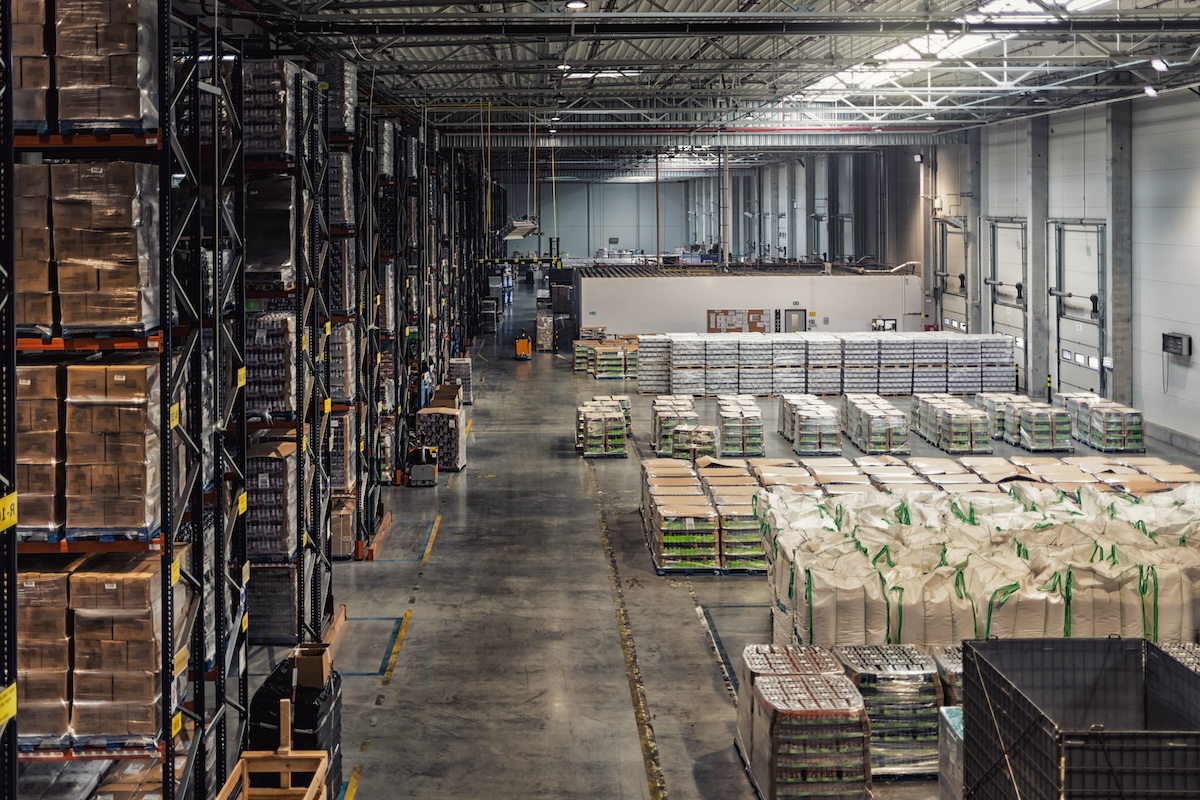Why Chicago is the Undisputed King for Warehousing and Distribution
Chicago isn't just a world-class city; it's the logistics capital of North America. For businesses looking to optimize their supply chain, slash shipping costs, and reach the vast majority of U.S. consumers quickly, the Chicagoland area is the premier choice for warehousing and distribution operations.
Its strategic geographic position, unparalleled transportation infrastructure, and deep pool of logistics talent create an undeniable competitive advantage. If you're searching for the best distribution hub in the US, look no further than the "City That Works."
1. The Centrality Advantage: Reach 70% of the US Population
Chicago’s geographic location at the heart of the U.S. is its most powerful asset. This central position translates directly into faster delivery times and lower shipping costs—critical components of modern e-commerce and supply chain efficiency.
- Unmatched Consumer Reach: Within a one-day truck drive (approximately a 500-mile radius), businesses in Chicago can reach over 100 million consumers, or about 30% of the U.S. population.
- Two-Day Ground Shipping: By utilizing ground shipping from Chicago, you can reach roughly 70% of the entire U.S. population within just two business days. This capability is vital for meeting customer expectations for speedy fulfillment.
- Reduced Shipping Costs (Zone Skipping): A central location minimizes the average shipping distance and the number of shipping zones, allowing for zone skipping and consolidation strategies that can reduce overall shipping costs by 15-25% compared to operating from coastal-only markets.
2. North America's Premier Multi-Modal Freight Hub
Chicago’s extensive and complex transportation network is second to none, providing seamless connectivity across all major modes of freight movement. This multimodal capability offers flexibility and resilience against supply chain disruptions.
The Rail Crossroads of America
Chicago is the largest rail hub in the United States, where six of the seven North American Class I railroads converge. This makes it the main interchange point between Western and Eastern railroads and a vital link for continental trade.
- Intermodal Dominance: The region handles approximately 50% of all intermodal containers in the U.S., making its intermodal facilities (like the massive CenterPoint Intermodal Center in Joliet/Elwood) crucial for cost-effective rail-to-truck transfer.
- Freight Volume: Over 7.8 million shipping containers originate or terminate in the Chicago metropolitan area each year.
Highway and Air Access
Beyond rail, Chicago boasts one of the nation's most extensive highway and air cargo systems:
- Interstate Network: Six major interstate highways—I-55, I-57, I-80, I-88, I-90, and I-94—intersect in Chicago, making truck-based distribution incredibly efficient.
- O’Hare International Airport (ORD): ORD is consistently ranked among the top global cargo airports, handling vast amounts of air freight annually, which is essential for international supply chains and high-value, time-sensitive goods.
- Waterway Connection: The Port of Chicago and the Illinois Waterway connect the city to the Great Lakes and the Mississippi River system, adding valuable access for bulk and heavy-haul shipping.
3. Robust Real Estate and Skilled Labor Market
The infrastructure supporting logistics excellence in Chicago is robust, featuring a massive inventory of industrial real estate and a highly skilled workforce.
Modern Warehouse Inventory
The greater Chicago area offers an industrial market of over 1.2 billion square feet, ensuring scalability for growing brands.
| Chicago Industrial Market Snapshot (Q1 2025) | Key Metric |
| Total Inventory | Over 1.4 Billion SF |
| Overall Vacancy Rate | Approx. 5.2% - 6.0% |
| Market Asking Rent (PSF, NNN) | ~$9.48 |
| SF Under Construction | Over 10 Million SF |
Source: Q1 2025 Industrial Market Reports
While the market is balancing out post-boom, demand remains strong for modern, high-utility facilities, especially near intermodal corridors like the I-55/I-80 Southwest Corridors.
Deep Talent Pool
The region’s long history as a transportation and logistics hub has created a vast ecosystem of expertise.
- Over 275,000 workers are employed in the transportation and warehousing sector in the Chicago metropolitan area.
- Local institutions, including the University of Illinois Chicago, offer specialized logistics and supply chain management programs, ensuring a continuous supply of highly educated professionals.
4. The Future of Logistics is in Chicago
For e-commerce, manufacturing, and third-party logistics (3PL) providers, Chicago offers a strategic platform for growth and optimization. The city is a hub for logistics technology (LogTech) innovation, attracting significant growth capital and fostering companies focused on route optimization, freight analytics, and last-mile efficiency.
By choosing Chicago for your warehousing and distribution needs, you are not just selecting a location; you are investing in a competitive advantage defined by speed, reach, and multimodal flexibility that few other places in the world can match.
Closing
Ultimately, Chicago’s standing as a world-class hub for warehousing and distribution is cemented by its strategic blend of geography, infrastructure, and market depth. Whether you are scaling an e-commerce brand or managing complex B2B logistics, positioning your inventory in the Chicagoland area is a non-negotiable step toward supply chain optimization and reducing transit times nationwide. Ready to harness the power of the Midwest? Explore how a Chicago-based logistics solution can transform your delivery speed and bottom line today.





